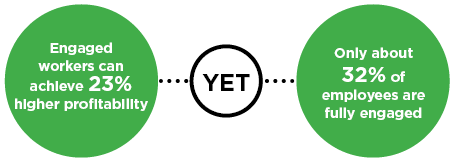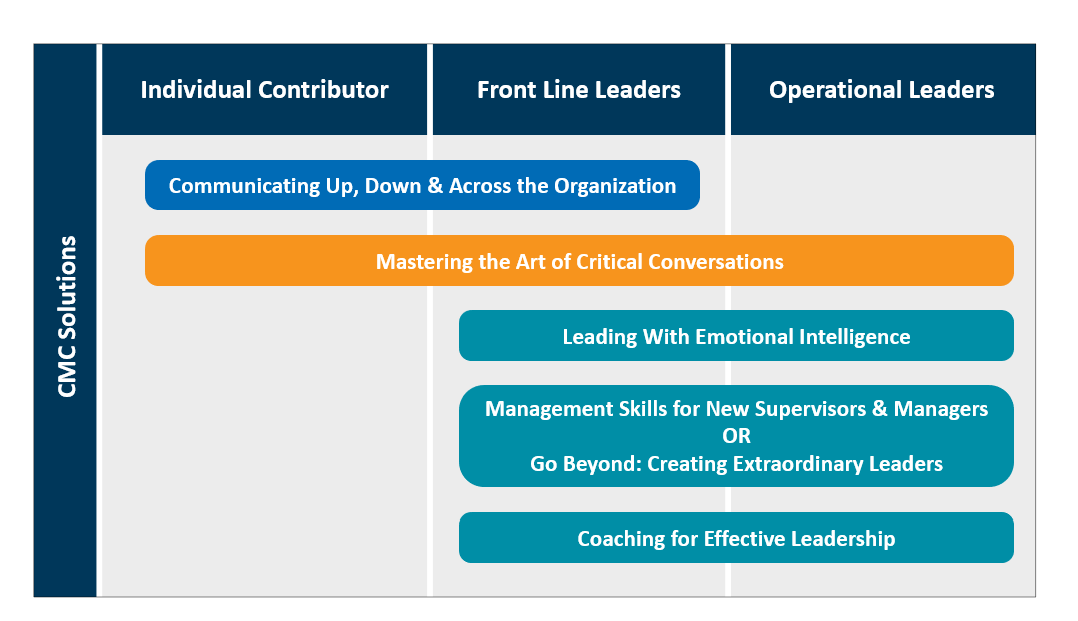
The impact of the pandemic, complex job market, digital transformation and shift to remote and hybrid workplace has many people rethinking their relationship with work. Changing mental health and job satisfaction needs of employees has a notable impact on their level of engagement. We know that engaged employees contribute to organizational success not only through higher profitability and customer loyalty, but also through lower absenteeism, turnover and work accidents. High performing organizations understand and respond to the evolving needs of their employees. Developing trusted relationships, improving work experiences and supporting the well-being of individuals across all levels fosters a culture where employees feel valued and motivated and builds their commitment to achieve high performance.
Our suite of programs offers personal insights through self-assessments, skills application, feedback and reflection. Learning activities involve realistic scenarios and activities designed to appeal to varied learning styles and preferences. Participants complete each program with a tangible action plan to support their learning transfer. Learning sustainment is enhanced through CMC’s Skills Adoption Toolkit. We collaborate to understand the specific needs of your organization and can customize a training plan to achieve your employee engagement goals.
Employee Engagement Framework
Effective communication up, down and across the organization impacts motivation, productivity, retention and other key indicators of engagement. Yet as few as 35 percent of employees believe they receive transparent communication throughout all levels of the organization. (Quantum Workplace,2021)
When employees feel a strong connection to their organization and the people they work with, they are likely to contribute more to their jobs and collaborate more effectively with others. (AMA,2022) Connected employees contribute to lower absenteeism and turnover and higher work quality and productivity. (HBR,2022)
Developing a high-performance culture means rethinking approaches and adopting healthy and supportive behaviors for the current environment. Employees who feel connected and supported are more likely to be engaged and contribute to positive organizational outcomes including profitability, productivity and customer service. (Gallup,2022)
Learning Framework

For Individual Contributors:
Front Line Leaders:
- Communicating Up, Down and Across the Organization
- Mastering the Art of Critical Conversations
- Leading with Emotional Intelligence
- Management Skills for New Supervisors & Managers OR
- Go Beyond: Creating Extraordinary Leaders
- Coaching for Effective Leadership
Operational Leaders:

